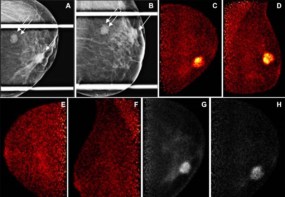
Researchers at Penn Medicine’s Abramson Cancer Center have received a $12 million grant to investigate next-generation cancer treatments based on immunotherapies and advanced radiotherapy techniques. The funding, from The Mark Foundation for Cancer Research, will be used to establish The Mark Foundation Center for Immunotherapy, Immune Signaling, and Radiation at the University of Pennsylvania.
Teams at the new centre will seek to better understand the interconnected relationship between novel forms of radiation therapy, important signalling pathways between cancer and immune cells, and the immune system’s ability to kill cancer. Five specific projects will bring together multidisciplinary teams of basic science and clinical researchers to answer these key questions.
“These projects have the chance to change the paradigm when it comes to cancer treatment,” says the centre’s director Andy Minn. “Understanding important and potentially targetable mechanisms of immunotherapy resistance and how to use novel radiation therapies to enhance immunotherapies carries enormous benefits for patients.”
Each of the five projects will converge on understanding the role of interferon (IFN) and pattern recognition receptor (PRR) signalling in enabling the immune system to fight cancer. IFNs normally protect cells from viruses, while PRRs are molecules that act as an alarm system that typically recognizes invaders. Two projects will identify the genetics behind IFNs and PRRs, including how they signal in cancer and immune cells, how they can be corrupted to do the bidding of cancer cells, and how vulnerabilities can be manipulated to improve response to immunotherapy.
Two other projects involve FLASH radiation, an ultrahigh-dose radiation delivery technique that can deliver an entire course of radiation therapy (which would typically be given over the course of weeks) in less than a second. Researchers will determine whether FLASH can more favourably impact IFN and PRR signalling than traditional radiation. They will also study whether FLASH makes a tumour more susceptible to attack by the immune system, while decreasing side effects normally associated with conventional radiotherapy.
The fifth project seeks to engineer chimeric antigen receptor (CAR) T cells capable of influencing IFN signalling in the tumour. The aim is to improve both the CAR T cells themselves, as well as initiate the “bystander effect” — engaging other immune cells that have not yet been activated to attack the tumour.
“When you combine Penn’s expertise in radiation oncology with our pioneering work in CAR T and immunotherapy, it’s clear these projects bring together the joint expertise of the Abramson Cancer Center in a way very few other institutions anywhere in the world can match,” says Penn’s James Metz.
Leaders of Penn Medicine and The Mark Foundation officially signed the grant establishing the centre on May 31.



